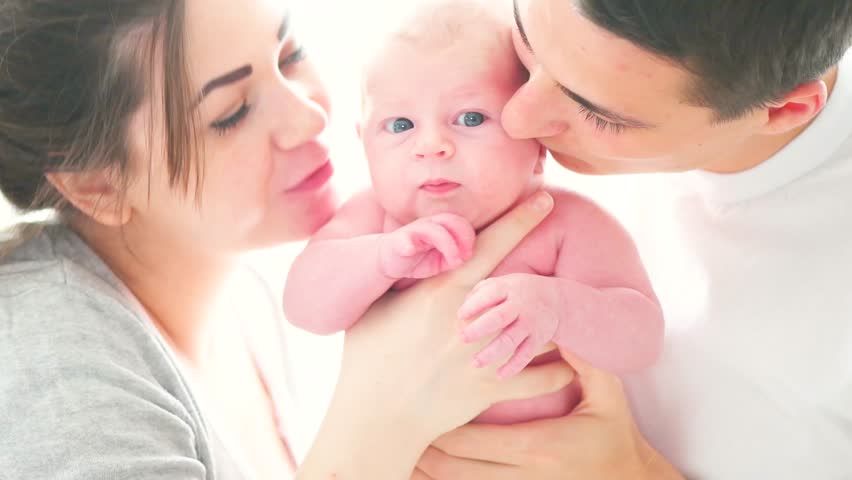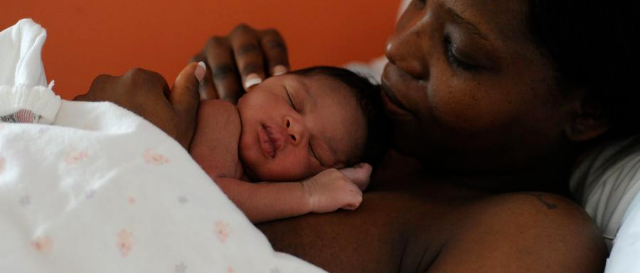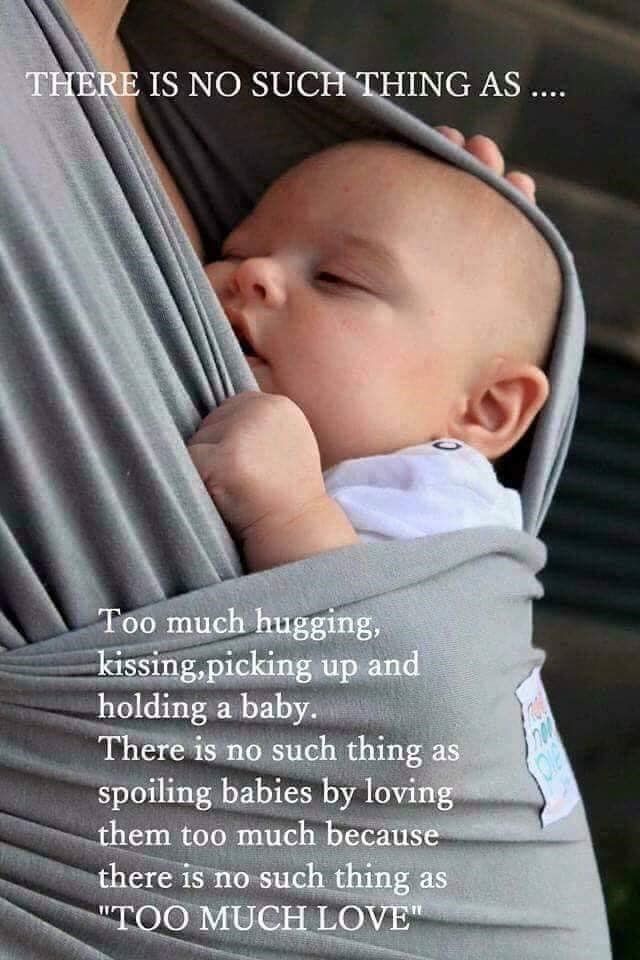Building a happy baby
Building a strong relationship between parents and their new baby will give them the best possible start in life, and will help them to grow up happy and confident. This information will help parents to develop that strong relationship, starting in pregnancy and continuing into the early days, weeks and months of a baby’s life.
A little bit of science
New babies have a strong need to be close to their parents, as this helps them to feel secure and loved. When babies feel secure, they release a hormone called oxytocin. This acts like a fertiliser for their growing brain, helping them to be happy babies and more confident children and adults. Holding, smiling and talking to your baby also releases oxytocin in you, which helps you to feel calm and happy.

Babies become spoilt and demanding if they are given too much attention.

When babies'needs for love and comfort are met, they will be calmer and grow up to be more confident.
New babies have a strong need
to be close to their parents, as
this helps them to feel secure
and loved.

Getting started
During pregnancy, your baby’s brain is growing very quickly. You can help this growth by taking some time out to relax and talk to them, to stroke your bump and maybe play some music. Encourage other close family members to do the same. You can help your baby’s brain development during pregnancy by talking, reading, stroking and playing music.
Try to take time out from busy schedules to rest .This is a good opportunity to talk to your baby and notice their movements.

Meeting your baby for the first time
After your baby is born, hold them against your skin as soon as possible and for as long as you want. This will calm them and give you both the chance to rest, keep warm and get to know each other. If you want to breastfeed, this is a great time to start, as your baby might move towards the breast and work out the best way to suckle. Breastfeeding also releases lots of oxytocin in baby and mother, which will help you to feel close and connected. If you choose to bottle feed, giving the first feed in skin contact while holding your baby close and looking into their eyes will also help you bond.

Early days
Keep your baby close to you so that you start to recognise the signals they make to tell you they are hungry or want a cuddle. Responding to these signals will make your baby feel safe. Cuddling your baby next to your skin allows them to smell you and hear your heartbeat, which will comfort and calm them. This will also help you to feel calm and relaxed and will help with breastfeeding. Breastfed babies cannot be overfed, so you can use breastfeeding to soothe your baby and as a way of spending time together or having a rest whenever you both want. If you are bottle feeding, hold your baby close during feeds and look into their eyes. Learn to notice their cues that they want to be fed and when they have had enough. If you and your partner try and give most of the feeds yourselves, this will help build up a close and loving bond with your baby. Continuing skin-to-skin contact can calm and comfort you both at any time.

It’s important to get babies into a routine, as this makes your life easier.

Young babies are not capable of learning a routine. Responding to their cues for feeding and comfort makes babies feel secure, so they cry less, which makes your life easier too.
Finding your rhythm
Having a new baby can be challenging. However, as time goes by, you will start to understand what your baby needs. This will help you settle into a rhythm that is right for you both. Responding to your baby’s needs for food and comfort will not only support their brain development, but will also help them feel secure. This will help them to cry less, which makes your life easier too. Holding your baby when they are crying helps them to feel loved and secure, even if they don’t stop crying straight away. Research shows that babies who are responded to in this way grow into more confident toddlers who are better able to deal with being away from their parents temporarily, rather than becoming clingy and spoilt. This again can help make life less stressful for you.

You should leave babies to settle alone so that they learn to be independent.

When babies are routinely left alone, they think they have been abandoned and so become more clingy and insecure when their parents return.

Slings and parent-facing prams can help make your baby feel secure.
Finally, it can be reassuring to know that, despite all the pressure to buy expensive equipment and toys for your new baby, you don’t really need to spend lots of money. What matters to your baby and their future development is having parents who love and care for them.




